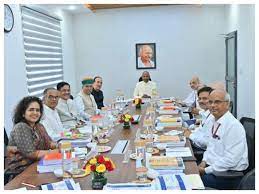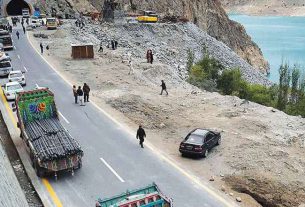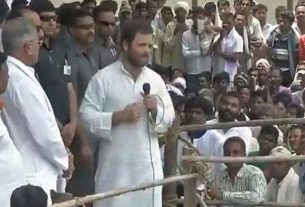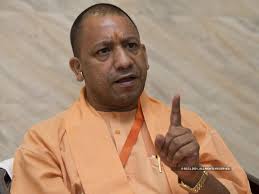New Delhi। Former President and The chairman of the HLC on One Nation One Election Ram Nath Kovind on Tuesday met and interacted with representatives of Trinamool Congress leaders Sudip Bandyopadhyay and Kalyan Banerjee who put forth their opinions on the subject.
The panel chief also met Communist Party of India secretary general Sitaram Yechury and former Rajya Sabha MP Nilotpal Basu and others as part of consultations with political parties. The leaders presented their views on holding simultaneous elections in the country. Meanwhile, from the Samajwadi Party, KK Srivastava and Dr Harish Chander Yadav attended the meeting, articulating the party’s position with regard to holding simultaneous Elections.
Representatives of these parties also handed over their suggestions in writing to the committee. Speaking to media persons after calling on the committee’s chairman, TMC leader and MP Kalyan Banerjee said, “Today we appeared before the committee headed by our former President. We opposed the idea of ‘One Nation, One Election’. We are of the view that there is a hidden agenda to replace the time-honoured parliamentary democracy in India towards a dictatorship or a presidential form of government in future. Our constitutional provisions cannot and should not be interfered with. Earlier, West Bengal Chief Minister Mamata Banerjee wrote to the high-level committee on ‘One Nation, One Election’, saying that she did not agree with the idea of holding simultaneous elections as the Constitution does not provide for the same. Does the Indian Constitution follow the concept of ‘One Nation, One Government? I am afraid it does not. Our Constitution conceives of the Indian nation in a federal manner. Therefore, the Indian nation has been given a Union government and several State governments. If the framers of the Indian Constitution did not mention the concept of ‘One Nation, One Government, how have you arrived at the concept of ‘One Nation, One Election’? The TMC Supremo stated in her letter to the panel.
After meeting with the High-Level Committee, Yechury told reporters on Tuesday, “We totally disagree with terms of reference of this committee because it is presumed that ‘One Nation, One election’ is possible and all that remains to be decided is how to implement it. In our opinion this presumption itself is wrong. ‘One Nation, One Election’ runs contrary to the spirit of our Constitution. It is anti-democratic and anti-federalism. When a govt loses its majority on the floor of the House, then its continuation is completely undemocratic. Earlier, on January 27, Ram Nath Kovind held consultations with Justice UU Lalit, former Chief Justice of India and Justice Sanjib Banerjee, former Chief Justice of Madras High Court and Manan Kumar Mishra, Chairman of the Bar Council of India, who gave their considered opinions on the subject. Continuing his deliberations with political parties, Kovind also held interactions with Deepak ‘Pandurang’ Dhavalikar, president, of Maharastrawadi Gomantak Party, Goa. The party offered its strong support to the idea of ‘One Nation One Election’, inter alia, arguing that it will strengthen grassroots democracy.
Recently, the committee had also met a delegation of Lok Jan Shakti Party, comprising members including Pashupati Kumar Paras, Union Minister for Food Processing Industries, President Rashtriya Lok Janshakti Party (RLJP), Prince Raj (Member of Parliament, Samastipur, Lok Sabha), Sanjay Sarraf, Spokesperson, Rashtriya Lok Janshakti Party (RLJP), and Ramji Singh, General Secretary, Rashtriya Lok Janshakti Party (RLJP). The committee had also held consultations with eminent jurists Justice Dilip Bhosale, former Chief Justice of Allahabad High Court, and Justice Rajendra Menon, former Chief Justice of Delhi High Court, who articulated their views on the subject.




